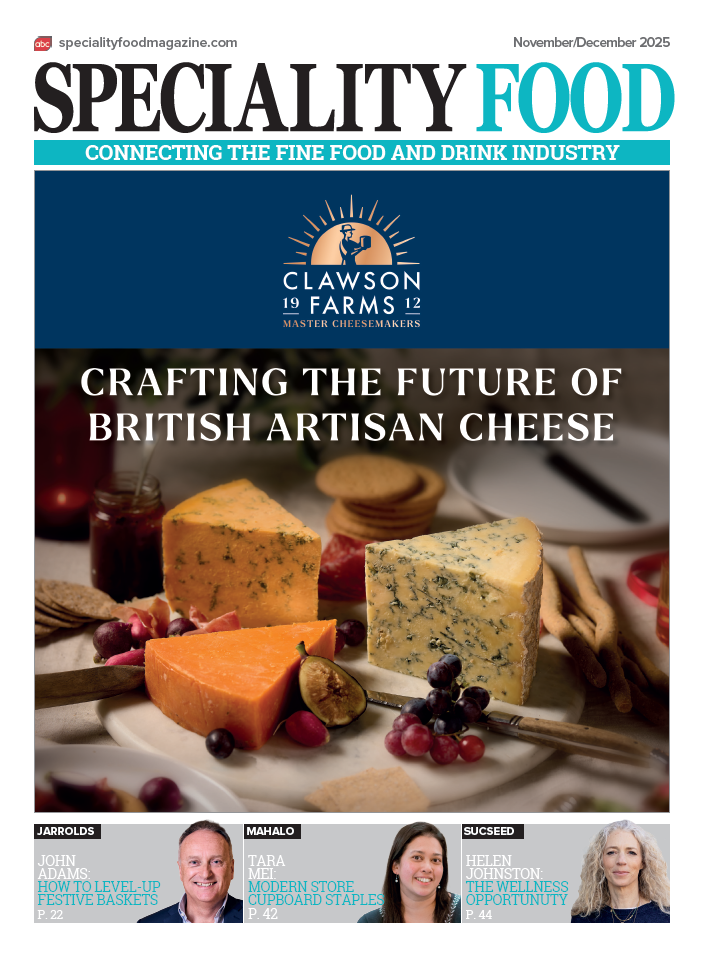“Sharing the glut”

- How one cheese shop supported locals in lockdown
- Rory Mellis, IJ Mellis: “Local businesses have a chance to flourish”
- Why we should be proud of the cheese industry’s response to Covid
- The joy of cheese grading
- “Keeping the faith”
It’s that time of year in the country, when anyone with even half a green finger and an apple or plum tree is trying to figure out what to do with Mother Nature’s overgenerous crop
As everyone has the same problem you need to look further afield for a solution, and maybe this is something rural retailers could take on as a community project.
With my move back to New Zealand looming, my last harvest is more poignant and important than other years. 20 years ago, when I first moved to Churchill, I couldn’t believe how eight apple and three plum trees could produce so much fruit that despite cupboards full of jams, jelly and chutneys and freezers bulging with pies and puddings, I barely made a dent.
In desperation, I did what any country dweller in New Zealand would do: I put a wheelbarrow laden with fruit at my gate with a sign saying ‘Help Yourself’. Three loads of coxes, bramleys and Victoria plums disappeared, and I was starting to feel I could beat the glut when the wheelbarrow disappeared along with the fruit. Horrified, I assumed the English were rather more literal than New Zealanders and put it down to cultural differences. So I was very pleasantly surprised two weeks later to find wheelbarrow back with three jars of apple chutney and an apple pie and no indication who the kind person was – a New Zealander would definitely have boasted of their good behaviour! Mind you, a New Zealander would probably have pumped up the tyres…
Since them I have foisted boxes of fruit, herbs and vegetables on to schools, chefs, care homes and hospices. I had great plans to spread the love and get the glut to those who could really benefit from it but never had the time, so I thought I would try to inspire you through my column to do something. And what’s not to like when it could gain you new customers, great local PR and the undying gratitude of gardeners and allotment owners?
A few years ago, my Slow Food group in the Cotswolds invested in a scratter and sturdy nine litre cast iron press for £150 from VIGO that can make around seven litres of juice an hour, to raise awareness of Slow Food by helping reduce the waste of all the wonderful apples and pears in the area. We used it at events, village fêtes and farmers markets and hired it out to individuals. In retrospect, the 12 litres [£175] would have been better – less effort, more yield!
We stuck notices up on village notice boards saying ‘Apple Pressing - convert your apples to apple juice’ (which, by the way, freezes superbly in used plastic milk containers). They paid per carrier bag and did most of the work – using the scratter to break up apples is very hot, hard work. But most were delighted and social media made sure we were kept busy most of the day. It’s not a huge investment for a retailer but is something you could take to schools or lend it out at events – just make sure they know it’s donated by you, watch out for wasps and find a pig farmer for the mountain of pulp!
My favourite farm shop – Daylesford Organic – borrows ours and, along with their rather beautiful press, offers visitors a chance to taste a whole range of apple varieties at their annual Harvest Festival. It’s a very popular event and a great opportunity to see a truly organic farm and remarkable retail establishment in action.
I managed to convince the chef or a large high school a few years ago to take 10 bags of my apples to convert to purée and pies. His initial reaction was rather negative, especially regarding staff, but a call for volunteers produced a surprising number of up and coming chefs and I think some miscreants found themselves in an unusual detention! From there we worked out a seasonal call of action which was sent out to parents and grandparents, telling them to bring in their fruit or vegetables on specific days. That way he and the staff could plan their time and deal with it. Not only does it help with the budget, but it encourages parents who didn’t usually feel they could contribute to start participating in the school.
In an ideally world I would love to see the conversion of seasonal gluts into edible school foods as part of the curriculum for all children, as it demonstrates the various methods of preserving fresh foods and might encourage them and their schools to plant more trees that bear fruit, grow more berries and appreciate how the preservation of seasonal gluts – which of course includes milk, meat, game and fish – can help us feed the world.
more from Cheese Talk
-
“Don’t sway to populists”
25 August 2016 Cheese TalkWith consumer demands continually fluctuating and markets changing on a yearly basis, it’s almost impossible to predict what the new craze or sudden ‘loser’ will be. -
“Making a spectacle of yourself”
12 July 2016 Cheese TalkUntil a few weeks ago I was feeling rather smug about my moved to New Zealand, basking in a four month-long near-drought with autumn temperatures rarely falling below 20ºC -
“Cheese magic – it’s in our culture”
17 May 2016 Cheese TalkWe all know that cheese is magic… really. Some milk, some rennet, some starter culture, some salt and maybe sometimes some controlled mould, and hey presto you have thousands of different cheeses

